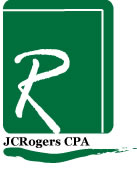Internal Controls
Internal Controls Can Prevent Employee Theft
Internal controls are simply policies and procedures that are implemented to deter or prevent business related internal theft by employees. Most of these controls involve the accounting system and the related books and records of the business. When effective internal controls are in place, employees will usually have to collude with other employees to facilitate a theft. Collusion is where two or more employees work as accomplices or co-conspirators to steal money or property from the business, thereby defeating a control procedure.
Today, more than ever, employee theft has become major problem throughout the country for small businesses. Business owners, faced with long workdays don't have the time to watch over these employees to make sure that there is no pilfering going on. You may even have another full time job where this business is a side venture for investment purposes. Well, simple internal control procedures can stop employees from stealing money and property from your business. Internal controls are simple policies that segregate duties and implement safeguards that make it harder for employees to steal. Often, when strict internal controls are implemented and working properly, it takes collusion between two or more employees to facilitate a theft scheme.
There are many types of frauds, but the most common is asset misappropriation. This type of fraud can be facilitated by skimming, cash larceny, payroll theft, cash sales theft, billing schemes, accounts receivable schemes, and just about every system that deals with cash is vulnerable to thefts. Understanding how fraudsters can manipulate systems will help you understand how to stop them with internal controls.
Cash Accounts
It is amazing to me how many small businesses do not reconcile their cash every month. Every month, you should have a reconciliation of cash in a file along with that month's bank statement, and at the end of the year, that folder should have all 12 months in it with your ending cash balancing to your books. I would suggest that you go to your bookkeeper first thing tomorrow morning and ask him / her to show you the reconciliations for the previous year and if they are not there in a folder for review, you may want to implement a policy today to start doing this.
Simple rules concerning segregation of duties will help prevent theft.
Segregating the duties of your employees is a proven method to reduce company thefts. These duties reflect the recording, authorization, reconciliation, and custody of assets and processes within your business control environment. Some helpful rules:
1) The same person that handles cash coming into the business (custody) should not record the receipt of that cash in the accounting records.
2) The same person that signs the checks should not be recording the transactions into the accounting records.
3) The same person that reconciles the bank accounts should not write or sign checks or make transfers between accounts.
4) The person that has the authority to write checks should not sign those checks. Consider having two signatories on each check.
5)
Never let the bookkeeper that enters transactions on a daily basis in the accounting system make general journal entries that override the system
6) The person that records the transactions into the accounting
system should not be depositing checks at the bank.
7) The same person that records payroll should not sign the payroll checks
There are many others, but you get the general idea. If you look at all of these rules, you will notice that each one separates two of the four elements. Are you too small to have these controls? Maybe, but consider the consequences and think about your daily involvement in the operations of your business. Are you adequately involved in this business. If you have grown too fast, you are probably not paying attention to these details.
Accounts Receivable:
This is what can happen without the proper controls.
A payment comes in from a customer on their account and it never hits your bank. The bookkeeper takes the check and makes a deposit in a similar named bank account that the employee has set up with another bank. Do banks check the names on checks? Not usually, and you can sign a check "mickey mouse" and the bank will most likely process it. Try it for fun and you will see how ridiculous this situation can become. Now, in this fraud, the accounts receivable has to be removed or the customer will complain when they receive their next months bill. The accounts receivable is written off to an expense account. This type of fraud cannot be performed with an accounting system that has built in controls over the journal entries that are allowed to be made. Accounts receivable should never be able to be written off to any other account besides cash. Your accounting system, most likely, lacks controls within the system to prevent this type of fraud.
Lapping fraud occurs when a check is stolen and then the next check that comes in is applied to the stolen account and so on. The bookkeeper cannot take a vacation or this type of fraud will be discovered. Beware of the employee you think is dedicated and never takes time off, they may be lapping your accounts receivable.
Sales:
Sales are either stolen off the books or on the books. If sales are stolen off the books, the employee does not have to worry about making an entry into the accounting system to cover the theft. Sales are skimmed and never make it to the register. The inventory in this type of theft will reflect a sale, because the beer is consumed or the meal is still eaten. Comparing weekly inventory purchases to weekly sales for each category of food and alcohol, will show distinct patterns. these sales patterns will be surprisingly accurate with little deviations between one week to the next. Inventory being stolen out the back door will also cause this relationship to be skewed. Accordingly, if the sales percentages are showing a strong variance, your employees are stealing either sales or food.
On the books sales are a little harder and will usually involve the making of general journal entries to write off sales or inventory
so the cash accounts will not be off. Remember that a booked sale raises the cash account and that cash account on paper must reconcile with the bank records each month. It is surprising how many businesses do not properly reconcile their bank accounts.


